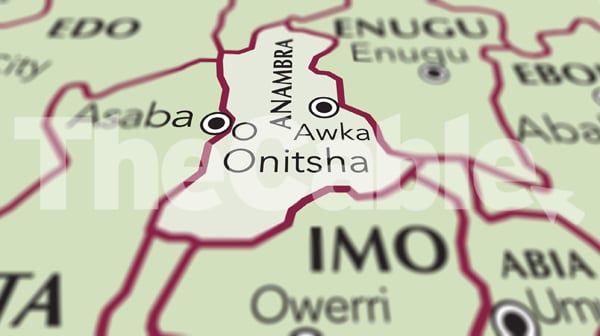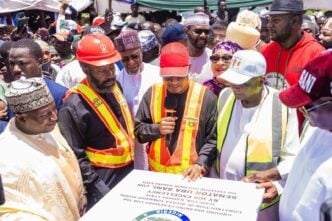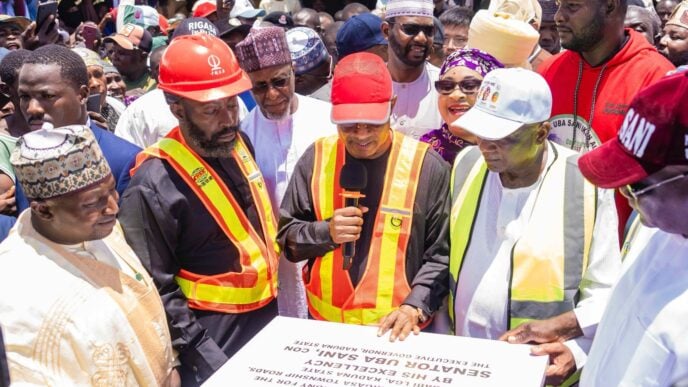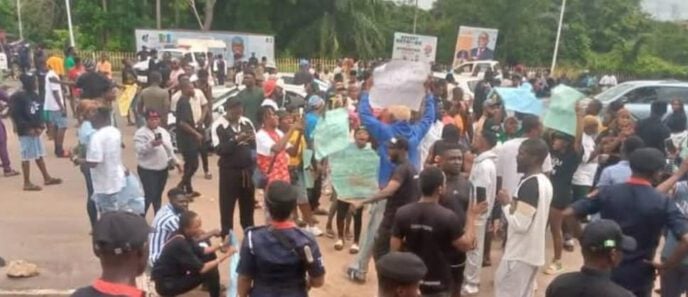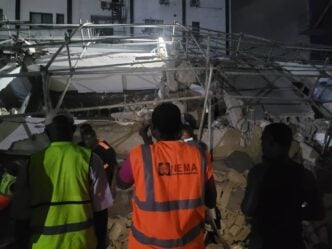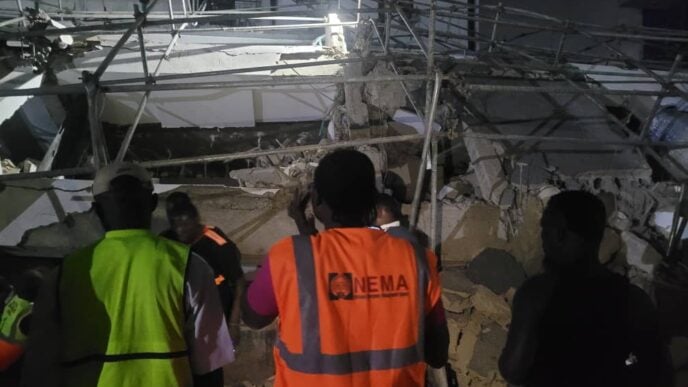A new report by the Kimpact Development Initiative (KDI) says the forthcoming November 8 governorship election in Anambra faces significant threats from political rivalry, insecurity and public distrust in state institutions.
The report, ‘The Early Warning: Assessing Pre-election Security Risk Ahead of the 2025 Anambra Off-cycle Governorship Election’, was released in Abuja on Friday.
The report is the outcome of an election security risk assessment (ESRA) conducted between July and August this year, covering all 21 LGAs in Anambra.
According to the report supported by the United Kingdom (UK) Foreign, Commonwealth, and Development Office (FCDO), the identified risks could undermine the credibility and safety of the November 8 poll if urgent actions are not taken ahead of the election.
Advertisement
“Political violence remains a persistent threat. Anambra’s electoral history continues to influence voter perceptions, with lingering distrust stemming from past episodes of politically motivated violence,” the report reads.
“Escalation of non-electoral violence: Compared with the 2021 elections, violence in Anambra has intensified beyond the electoral cycle, reflecting structural grievances that may be activated during election campaigns.
“Rivalries intensifying resentment: Competition among political actors is increasingly personalised, increasing the likelihood of tensions escalating if campaign communication is not carefully managed.
Advertisement
“Public distrust in security agencies: Many LGAs exhibit low confidence in state security forces, creating vulnerabilities in electoral security enforcement and crisis management.
“Community-level disputes as escalation triggers: Local disputes, though moderate in intensity, carry potential for rapid escalation during heightened electoral activity, particularly in urban and peri-urban LGAs.
“Latent identity tensions: Ethno-religious and identity-based grievances exist beneath the surface and could be activated by misinformation, exclusionary narratives, or provocative political messaging.
“INEC credibility under pressure: Perceived deficits in transparency, preparedness, and responsiveness pose risks to public trust in the electoral process.
Advertisement
“Youth unemployment as a structural risk multiplier: High levels of youth unemployment across LGAs increase susceptibility to political mobilisation, vote-buying, and engagement in coercive electoral activities.
“Gender-based risks remain under-recognised: women face intimidation, under-representation, and potential electoral violence, with insufficient monitoring mechanisms to mitigate these risks.
“Media and information space is highly fragile: bias, misinformation, and manipulation—amplified by digital platforms and generative AI—pose a significant threat to public trust and election credibility.”
The report noted that while separatist violence has declined compared to 2021, non-electoral violence has intensified, with community disputes and targeted attacks creating a volatile environment.
Advertisement
Ihiala and Aguata were identified as the highest-risk LGAs, while Awka south, Onitsha north, Ogbaru and Idemili north were flagged as high-risk zones.
The report said the threats are responsible for the declining voter participation in the state, noting that turnout fell from 21 percent in the 2017 governorship election to just 10.3 percent in 2021, largely due to insecurity linked to separatist activities and threats to electoral officials.
Advertisement
The KDI report said fear and apathy may again combine to suppress participation in 2025 unless stakeholders act decisively.
RECOMMENDATIONS
Advertisement
To ensure peaceful and credible elections, the report urged INEC to rebuild public confidence by improving transparency in voter card distribution and strengthening its communication strategy.
It called on political parties to respect codes of conduct and avoid inflammatory rhetoric, while security agencies were advised to deploy operatives adequately in high-risk LGAs and establish rapid response mechanisms.
Advertisement
The report recommended greater civic engagement with unemployed youth to reduce their susceptibility to vote-buying and gender-sensitive measures such as deploying female officers and providing safe reporting channels for women.
The assessment report asked stakeholders to counter misinformation with verified information campaigns and promote community peacebuilding initiatives across the state.
